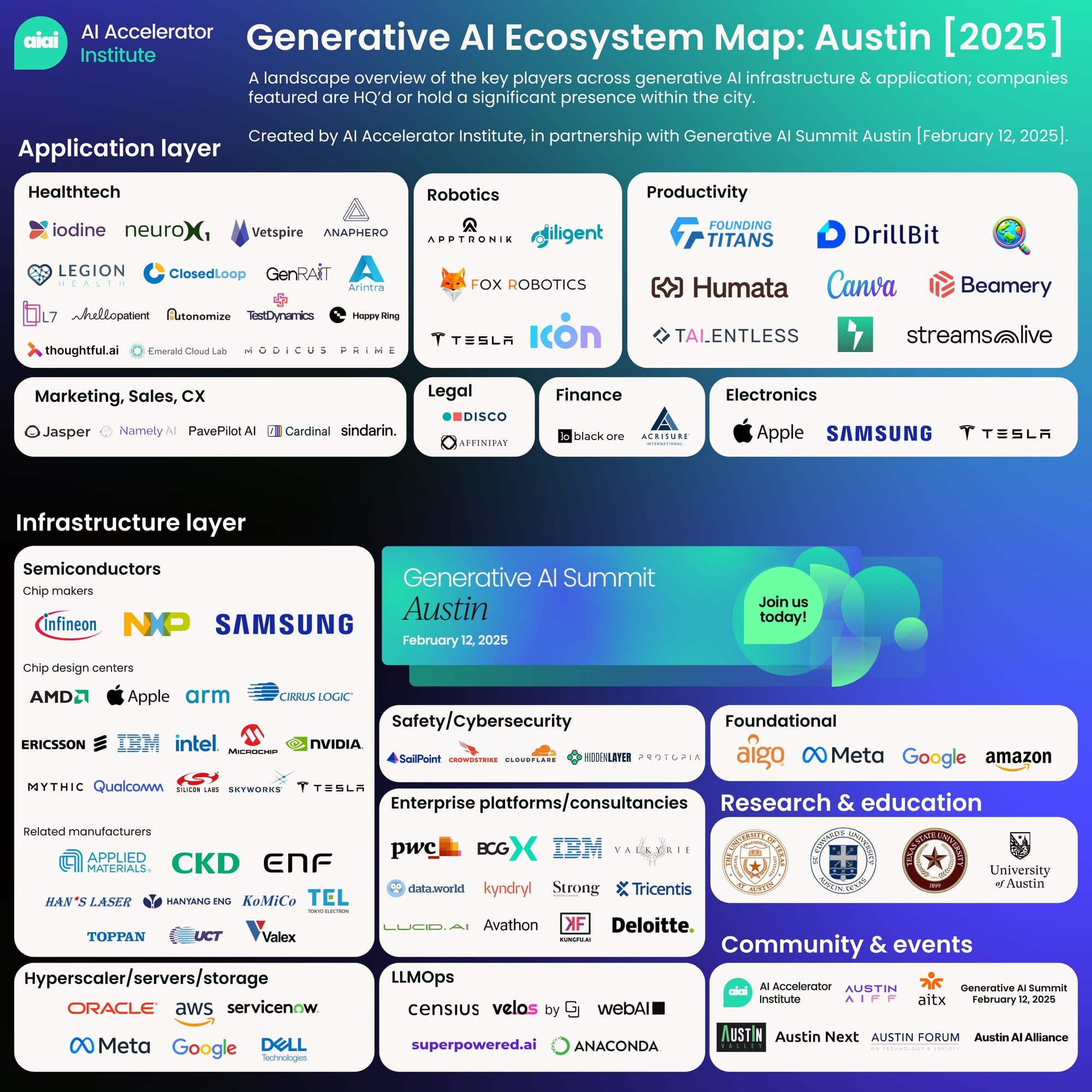Ranked 17th globally in StartUp Blink's 'Best Cities for Startups' 2024 rankings - an index factoring quality, quantity and growth - Austin's tech force and industry is still booming: over 7,500 companies, employing 180,000+, representing >13% of the city's workforce. By headcount, the city's industry is predicted to grow 3.2% this year [Workforce Solutions Capital Area].
50 years & counting of pioneering innovation
From the '60s with Tracor, IBM, and Texas Instruments, to the '83 arrival of MCC, to Michael Dell's '84 dorm room startup - Austin has a history of powerhouse innovators. Fast-forward to 2018, Apple's $1 billion investment plans in Austin solidified its position as the company's second-largest location outside California, and significantly impacted the city's future.
Today, giants like AMD, Tesla & Google call Austin home - or at least a significant second home. The city's blend of startups and established companies fosters a dynamic ecosystem, and UoT consistently graduates top talent, fuelling the industry.
Mapping Austin's generative AI ecosystem
Embedded in the applied AI landscape globally, AI Accelerator Institute is attempting to map its entirety.
With the support of Austin AI Alliance & AustinNext, featured below is an ecosystem map of Austin's major players across both application and infrastructure:

What's the draw?
Austin not only breeds its own, but attracts top talent with a number of competitive advantages. In short: Silicon Valley-level innovation at a lower cost and a higher quality of life.
No state income tax and significantly lower housing costs than other tech hubs attract both startups and established companies, offering a compelling cost advantage.
The tech scene is incredibly diverse, encompassing AI, cybersecurity, eCommerce, and healthtech, fostering an ecosystem where innovation thrives, whilst the city itself boasts an exceptional quality of life, with renowned food trucks, a vibrant live music scene, and year-round outdoor activities.
Early pioneers like Texas Instruments and Dell recognized Austin's potential, transforming it into a thriving tech hub where startups and established companies can afford to experiment and grow. Austin offers more than just work opportunities; it provides a unique lifestyle where technology and culture seamlessly intertwine.

Challenges ahead...
Austin's tech scene faces challenges in 2025, but remains a dynamic force.
Remote work is reshaping the landscape, easing traffic congestion whilst pretty heavily impacting office space, with vacancy rates at 16%. However, these high rates present opportunities for startups, and despite high housing costs, new developments offer hope. There's strong evidence that the tech industry is benefiting from all of this, with 16.3% of jobs in the tech sector - significantly higher than the national average of 9%.
Focus is shifting towards generative AI and clean tech, with major players expanding their presence. Infrastructure improvements, including geothermal facilities and data centers, are underway. While inclusivity and growth pains remain, Austin's competitive tax advantages, vibrant culture, and abundant opportunities continue to attract talent and companies.



 Follow us on LinkedIn
Follow us on LinkedIn


